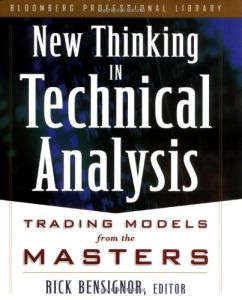Melden Sie sich bei getAbstract an, um die Zusammenfassung zu erhalten.

Melden Sie sich bei getAbstract an, um die Zusammenfassung zu erhalten.
Rick Bensignor
New Thinking in Technical Analysis
Trading Models from the Masters
Bloomberg Press, 2000
Was ist drin?
Tools of the techs: Candle charts, Elliott Wave, retracements, tests and breakouts.
Recommendation
In this compilation edited by Morgan Stanley Dean Witter technical strategist Rick Bensignor, a dozen financial experts discuss their individual approaches to technical analysis of the stock market. In the first chapter, equities, options and futures trader Linda Bradford Rasche explains swing trading and the underlying principles of technical analysis, thus providing an important primer for understanding the theories in the rest of the book. This is a complex read, since technical analysis involves using various mathematical systems to examine market trends and swings. Those who follow the market closely will find this engrossing, but amateurs could be daunted. getabstract recommends the book to serious students of the markets - It’s not for the casual browser or those who are not mathematically inclined, but its targeted readers will be quite satisfied.
Summary
About the Author
Editor Rick Bensignor is a vice president and senior technical strategist at Morgan Stanley Dean Witter. He is also an adjunct professor at New York University’s School of Continuing and Professional Studies, where he teaches technical analysis. For 14 years, he worked as a floor trader on several New York futures exchanges. Subsequently, he served as Bloomberg LP’s senior product specialist for technical analysis, futures and commodities.























Comment on this summary